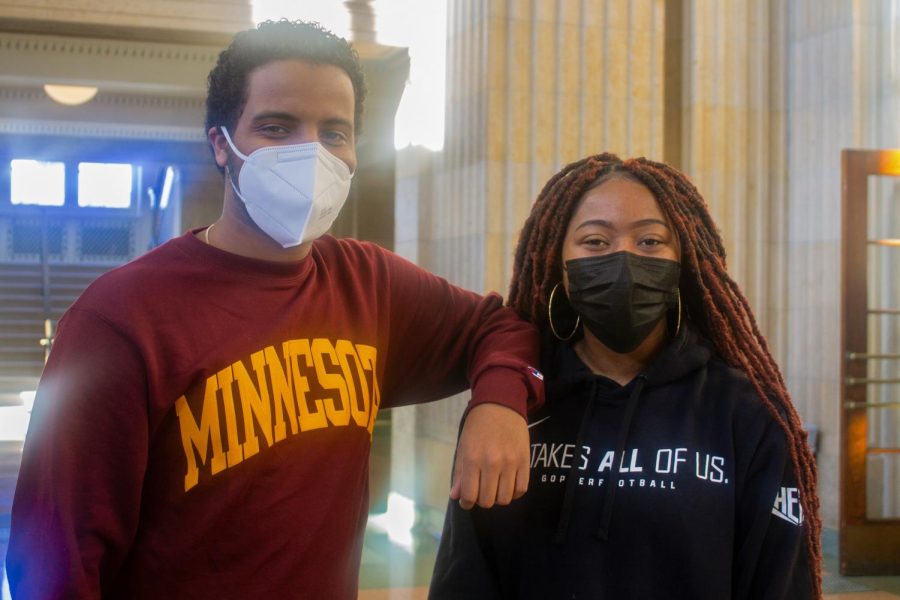The Minnesota Daily sat down with the Minnesota Student Association (MSA) President Abdulaziz Mohamed and Vice President Samiat Ajibola to discuss their achievements during the past semester and their plans for the upcoming spring.
What did MSA accomplish this past semester?
Mohamed: “There’s been a lot of wins for students, such as the rollout of a monthly grocery store with low cost and affordable groceries for students, University divestments in the fossil fuel industry, building on MSA’s long existing civic engagement efforts with high student voter turnout in the 2021 local election and the passage of numerous legislations in Forum. All of this could not have been accomplished without the amazing advocates that we have within the organization.
What were some of the goals MSA had at the start of the fall semester?
Ajibola: “We were super optimistic coming in. We wanted to get all these things done as soon as possible, but we learned that the University is so big and has so many moving parts, that we can’t get everything we want to get done on our own timeline. We have to work a lot with other people, like legislation, administration and other student groups.”
What are MSA’s plans for the spring semester?
Mohamed: “We will be continuing our push for universal transit passes to provide ample transportation for students. We will be holding the Board of Regents accountable for the proposed dining and renaming policy. We’ll be working with the new Campus Safety Ad-Hoc Committee to achieve an equitable campus safety infrastructure. We will make sure that we are continuing our work to lead the health and wellness of students by helping them navigate the complexities of the COVID-19 pandemic.”
What are MSA’s strategies to accomplish these goals and see progress?
Ajibola: “I think our strategies are using the gifts and talents of our team. MSA is the biggest organization in the student body and we have so many bright and beautiful minds that think so differently from Abdul and me. We have to use and hone in on those talents. How can we connect our teams to students at-large and make sure they’re involved? How can we incorporate their skills and connections to push things forward? Just utilizing the way MSA is structured and using every single different arena to work together towards a common goal. We have to work together as one unified body to get things done.”
Mohamed: “MSA prides itself on a multifaceted advocacy approach, so it is making sure we live up to the promises we made at the beginning of our campaign and the work that we’re doing within MSA as a whole. Our expectations heading into the school year versus now are much different and I think that we’re better for it. We have noticed that student advocacy isn’t a sprint, it’s more of a marathon.”
For you personally, what are you most proud of with MSA?
Mohamed: “I am super happy with the work our Basic Needs Task Force has done, especially as it relates to moving out the Mobile Market. We wanted to establish a student-run food co-op right here during the fall semester. While that wasn’t something that necessarily happened, we were able to build up to [where we want to be]. Having that mobile grocery store is the first step.”
Ajibola: “Coming into MSA, I always thought, and what a lot of other students think, is that MSA is super high up, super elitist, and I don’t fit in here. MSA doesn’t represent me. I think this year, MSA has done a really good job of changing that narrative. A lot of the work we’re now doing is student at-large focused. We’re doing a lot more engagement. We’ve done so many things, where each and every centralized group of MSA has reached out to the students and created lasting relationships.”
This interview has been edited for clarity and length.













